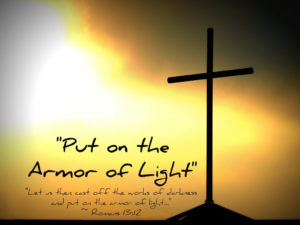Today’s reading is Hebrews 2.
Has your boss ever assigned a task for you to complete you felt was “below you?” Did you grumble or complain to them or someone else….or at least under your breath at a minimum? Did you do the job to the best of your ability? I’m very grateful for the opportunity to play golf at the course I grew up working on as a kid with my Dad, brother, one of my nephews, and my son the last few days. As we told many funny stories about things that happened while my brother and I worked out there, I couldn’t help but think of one story which wasn’t necessarily funny as I read Hebrews 2. It was my 3rd summer working there, and I expected to be moving up to tasks like mowing greens and fairways. While I did get the larger responsibility to change the cups and hole location daily, I was also assigned tasks to pull weeds out of flower beds while a few of the other workers who started the same time were assigned other, more dynamic tasks. Although I would like to say I did it cheerfully, I was not happy. I felt I was above that task after a few years of working there and doing what I felt was a better than the other guys at whatever I was assigned. In fact, after a few weeks of this, I just went and found another job working construction for my Dad’s best friend.
Let’s just say I’m glad Jesus didn’t have the same mindset and find another job like me. We are told here in Hebrews 2:10 that Jesus was “for whom and by whom all things exist.” Yet, we are then told in Hebrews 2:14-18….
“Since therefore the children share in flesh and blood, He himself likewise partook of the same things, that through death He might destroy the one who has the power of death, that is, the devil, and deliver all those who through fear of death were subject to lifelong slavery. For surely it is not angels that He helps, but He helps the offspring of Abraham. Therefore, He had to be made like His brothers in every respect, so that He might become merciful and faithful high priest in the service of God, to make propitiation for the sins of the people. For because He himself has suffered when tempted, He is able to help those who are being tempted.”
I’m pretty sure I have mentioned this before in past writings, but when doing street ministry a few years ago for Spread Truth, one gentleman said he didn’t believe the Gospel because no God would lower himself to do what Jesus did. Essentially, he said if he were God that’s not what he would do. Well, he was right, none of us likely would because we are not God, and we can’t imagine the love He has for us and what He did. At age 18, I was already “above pulling weeds,” so how I can I fathom God coming in the flesh and suffering a brutal and painful death on my behalf, taking my place, when He didn’t have to? I can’t. But, I can get on my knees and just say thanks.
https://www.youtube.com/watch?v=WTYe9sWYKdo



